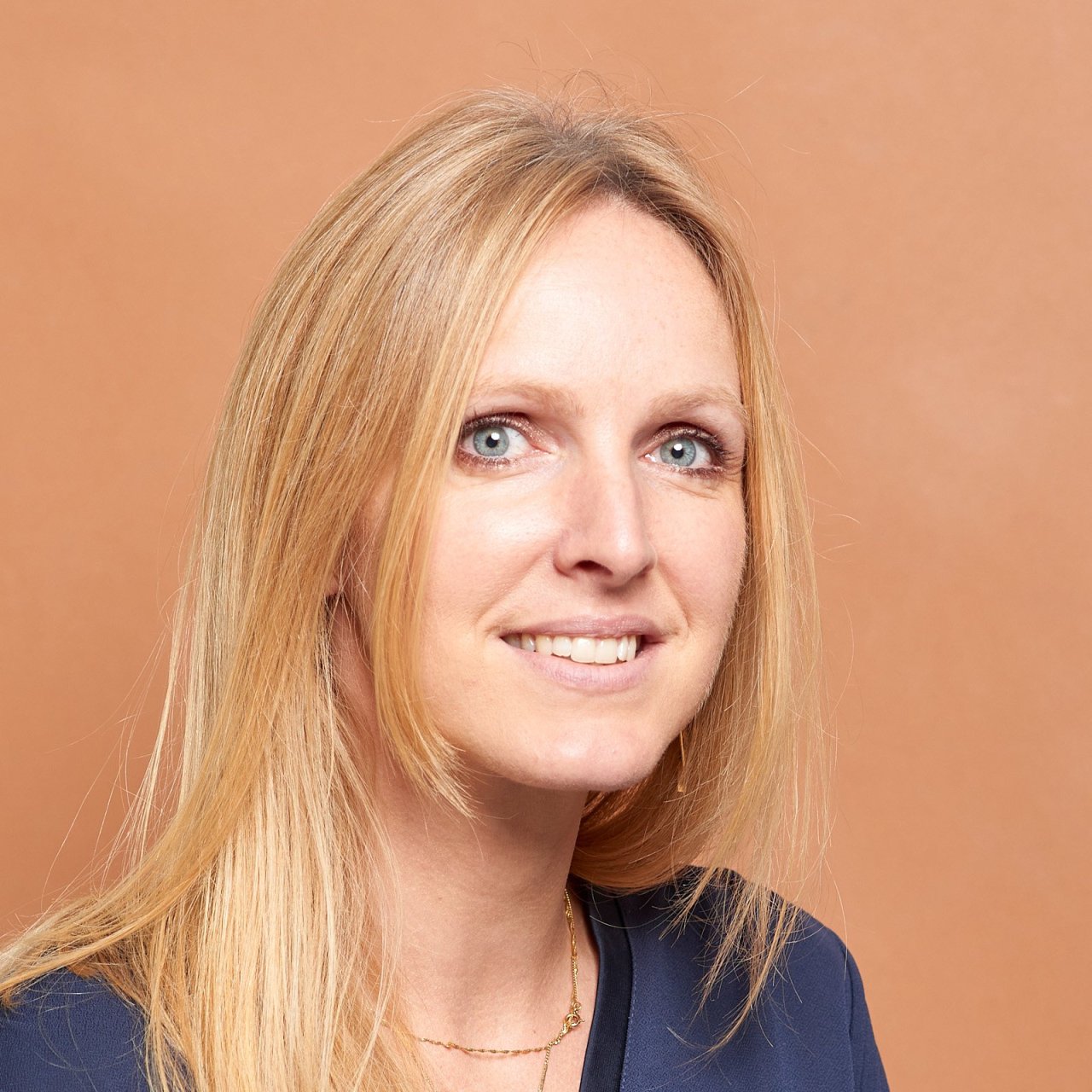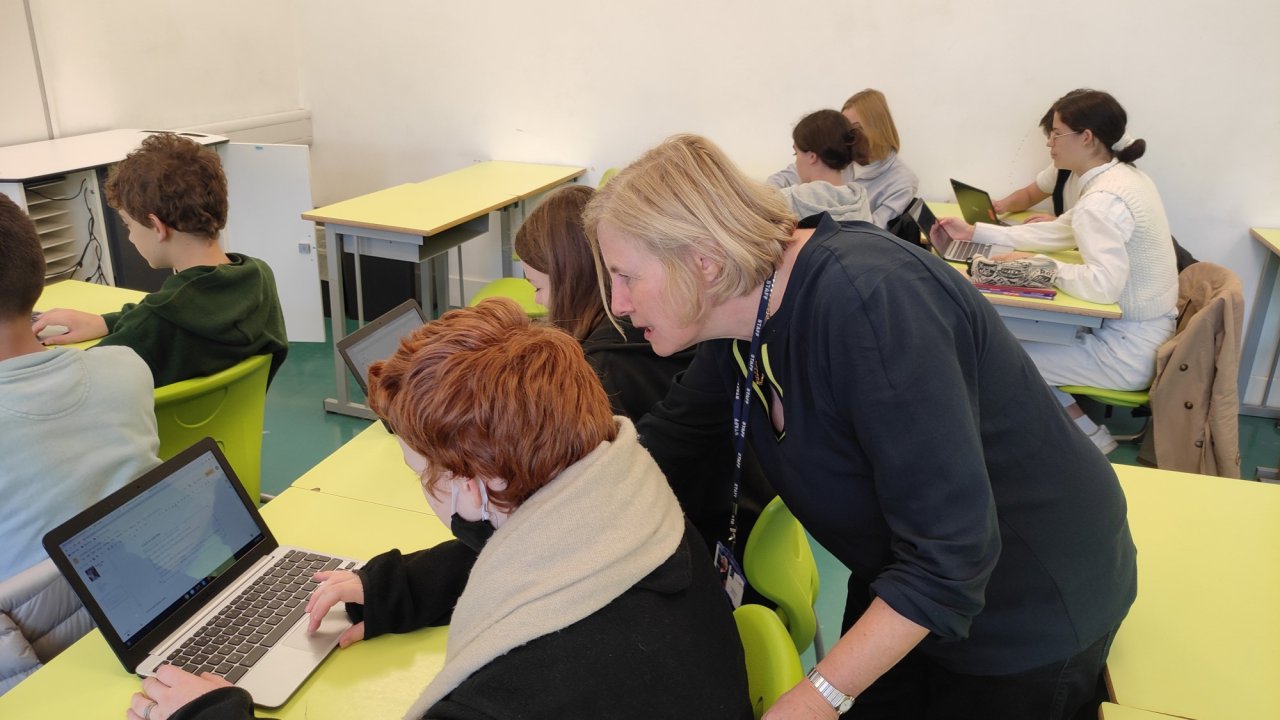At CFBL, the safeguarding of our students is the highest priority. Parents and carers send their children to school each day with the expectation that the school provides a safe and secure environment in which their children can flourish. We, therefore, have to ensure that this expectation becomes reality. Please visit our Policies section to learn more about what measures are put in place.




The Designated Safeguarding Lead is the person appointed to take responsibility for safeguarding and child protection.
DSL's main responsibilities are:
- manage referrals (cases of suspected abuse, radicalisation, crime, etc.)
- work with the local authority and staff if a concern has arisen,
- ensure that safeguarding policy is available and that parents are aware of the policy,
- keep detailed, accurate and written records of safeguarding concerns.
Don't hesitate to contact our DSL Marjorie Lacassagne at safeguarding@cfbl.org.uk.

What to do if I am worried about a child?
Safeguarding children and young people is everyone’s responsibility
If you are worried a child or young person is at risk of, or has suffered significant harm, please contact the Children and Families Contact service. In cases of an emergency and immediate response, always contact the police on 999.
Should you have any concerns about a child you can contact MASH (Multi Agency Safeguarding Hub):
Phone: 020 7974 3317
Email: LBCMASHadmin@camden.gov.uk
Out of office hours (after 5pm, weekends and bank holidays): 020 7974 4444
Early help
Everyone needs a little help sometimes. If you're feeling worried about your child, or you want to make a change in your life, Camden Early Help is here for you, your children and your whole family. The Early Help Assessment is voluntary – you and your child can choose to be involved.
It can lead to a quick solution or help to identify extra support if needed. The Early Help Assessment will ensure that everyone involved with your child – such as teachers and health visitors – works together to support your child. The Early Help Assessment will help your child receive the right support at an early stage before their needs increase which can be much more difficult to help you with. As The Early Help Assessment is a shared assessment, you and your child will not have to repeat the same story to different workers.
Free support service for families with children aged 0 to 19 in Camden
Practical and emotional support with a range of life issues
Working with you and your family to help make changes
Helping you and your family to feel connected in your community.
Contact :
Phone: 020 7974 3317 (9am to 5pm - ask for Early Help)
Email: LBCMASHadmin@camden.gov.uk
E-safety
Using the Internet safely at home - Advice for parents
Whilst many Internet Service Providers offer filtering systems to help you safeguard your child at home, it remains surprisingly easy for children to access inappropriate material including unsuitable texts, images and movies. Parents/guardians are advised to set the security levels within Internet Browsers with this in mind.
Locating the device to access the Internet in a family area will enable you to supervise children as they use the Internet. However, don’t deny your child the opportunity to learn from the wide variety of material and games available on the Internet. Instead, set some simple rules for keeping them safe and make sure they understand the importance of these rules.
Simple, suggested rules for keeping your child safe (Advice for Primary school pupils)
ask your permission before they use the Internet
only use websites you have chosen together or a child friendly search engine
only email people they know (perhaps an address book would be useful)
ask permission before opening an email sent by someone they don’t know
do not use Internet chat rooms
do not use their real name when using games on the Internet (perhaps encourage them to create a suitable nick name)
never give out a home address or personal contact details
never tell someone where they go to school
never send an image of themselves, their home or school
never arrange to meet someone they have ‘met’ on the Internet
only use a webcam with people they know
ask them to tell you immediately if they see anything they are unhappy with using these rules
Go through the rules with your child and ensure they understand what you suggest. It is also a good idea to regularly check the Internet sites your child is visiting e.g. by clicking on History and Favourites. Please reassure your child that you want to keep them safe rather than take Internet access away from them.
Social media
You may be wondering when is the best age to let your child have a social media account, or have some concerns if they’re already using tem.
For advice and guidance, read Is your child ready for social media?
Remember, most social media services require users to be at least 13 years of age before they can register.
Most young people have positive experiences socialising online, but it can be easy for young people to share things or post things they wish they hadn’t.
The simplest way to have information about your child removed from a website, or app is to contact the site itself.
Read reporting to social media sites for more information.
Social media can offer young people to express themselves and have fun, but they could be exposed to harmful content which might include sexual images or videos which could impact on their understanding of sex and relationships.
Online gaming
Online games are social activities, and most have features that allow young people to chat with others whilst they play.
For information about the positives of gaming, the risk of ‘in-game chat’ and measures you can take to help protect them, watch this short video : In-game chat:a guide for parents and carers.
The PEGI (Pan European Game Information) rating system can be a useful tool to help you decide what online games are appropriate for your child.
For more information on the PEGI system and other factors to consider before deciding what’s suitable, read Gaming:what’s appropriate for your child.
Gaming is popular with both children and adults. If your child is gaming, you may have some questions about how to keep them safer. If so, check out Gaming: what parents need to know.
Support organisations
For more resources, please see our Child protection Policy
NSPCC ‘Report Abuse in Education’ Helpline
National Organisations
NSPCC: www.nspcc.org.uk
Online Safety
CEOP: www.ceop.police.uk
Internet Watch Foundation (IWF): www.iwf.org.uk
Think U Know: www.thinkuknow.co.uk
Childnet: www.childnet.com
UK Safer Internet Centre: www.saferinternet.org.uk
Report Harmful Content: https://reportharmfulcontent.com
Get Safe Online: www.getsafeonline.org
Parents Protect: www.parentsprotect.co.uk
Mental Health
Mind: www.mind.org.uk
Moodspark: https://moodspark.org.uk
Young Minds: www.youngminds.org.uk
We are with you (formerly Addaction): www.wearewithyou.org.uk/services/kent-for-young-people/
Anna Freud: www.annafreud.org/schools-and-colleges/
Peer on Peer abuse, including bullying, sexual violence and harassment
Brook: www.brook.org.uk
Disrespect Nobody: www.disrespectnobody.co.uk
Upskirting – know your rights: www.gov.uk/government/news/upskirting-know-your-rights
Lucy Faithfull Foundation: www.lucyfaithfull.org.uk
Stop it Now! www.stopitnow.org.uk
Parents Protect: www.parentsprotect.co.uk
Anti-Bullying Alliance: www.anti-bullyingalliance.org.uk
Diana Award: www.antibullyingpro.com/
Kidscape: www.kidscape.org.uk
Substance Misuse
We are with you (formerly Addaction): www.wearewithyou.org.uk/services/kent-for-young-people/
Talk to Frank: www.talktofrank.com
Radicalisation and hate
Educate against Hate: www.educateagainsthate.com
Counter Terrorism Internet Referral Unit: www.gov.uk/report-terrorism
True Vision: www.report-it.org.uk
